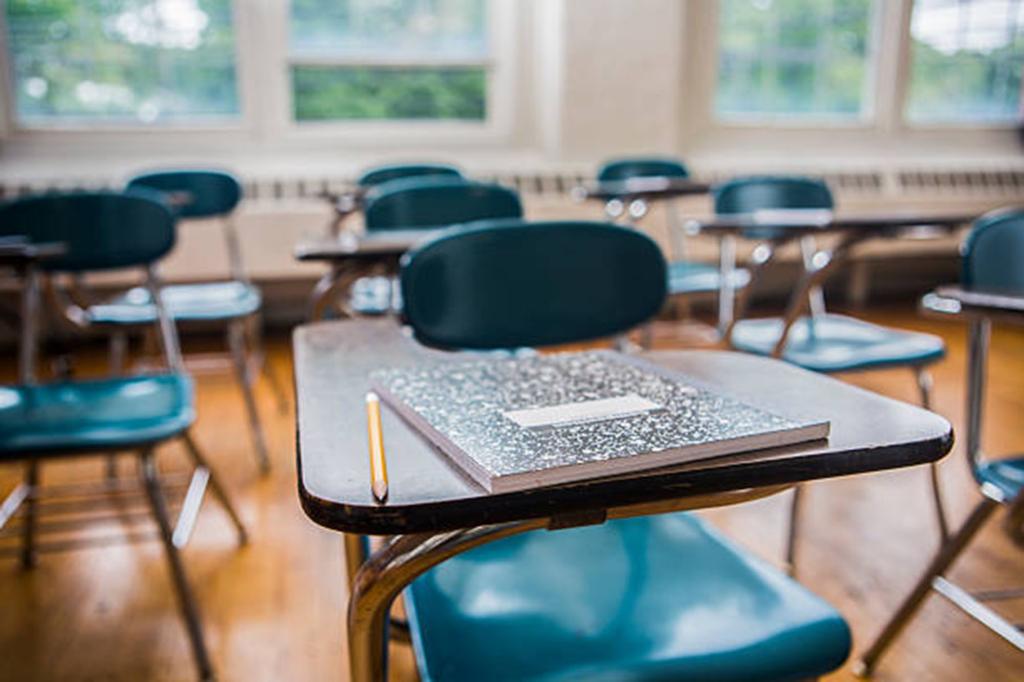opinion
In recent decades, despite ever-increasing resources, the quality of public education has clearly declined, writes former U.S. Attorney General William Barr.
Getty Images/iStockphoto
American public schools were formed in the early 19th century.
Supporters believed that universal education was best achieved through a unified system of publicly funded, state-run schools.
They saw these schools as fulfilling three important missions: providing an academically excellent education, promoting national unity, and instilling strong moral values.
How are public schools working to achieve these original goals?
Over the past 200 years, some schools have achieved great results.
However, in recent decades, the quality of public education has clearly declined, despite increasing resources.
First, the decline in academic achievement is a national scandal.
Pupils' dismal performance in maths and reading is at its lowest in decades, and the picture is even more dire when scores are compared internationally.
American students have not performed above the international average in mathematics for the past 20 years.
Countries such as China, Taiwan, Japan, and South Korea consistently receive the highest math scores.
Our nation's prosperity and security depend on continued technological leadership, but America's mediocre educational performance in international rankings signals signs of decline.
When an international assessment was conducted in 2018, China received the top score. The United States was ranked 38th.
America's reading and science scores remain well below those of number one China.
And students in private schools, particularly Catholic schools, typically score higher on national assessments than students in public schools.
In New York, charter school students achieve significantly higher proficiency rates than traditional public school students.
Public schools are also failing in their second mission.
Instead of building common bonds and promoting unity, they are doing the exact opposite.
Schools are increasingly adopting curricula that espouse ideologies such as critical race theory and are designed to teach students that they are divided by irresolvable differences.
When students are taught that “America is evil,'' “white people are inherently privileged,'' and “racist and disparate outcomes are caused by systemic racism,'' they have a negative impact on their cultural identity. Sharing, trust among peers, and trust in individual efforts crumble.
Perversely, state schools indoctrinate students with an ideology that questions the very legitimacy of our nation and clearly attacks and undermines our Founding Fathers, documents, and principles.
Public schools are no longer institutions we can trust. Howl out of pluribus.
In contrast, research shows that private and religious schools in the United States are more effective in instilling political tolerance, encouraging civic engagement, teaching civic skills, and fostering patriotism in students.
In fact, parochial schools had an enviable track record of integrating wave after wave of new immigrants into American society, which is still reflected today.
Finally, how are public schools doing in fostering moral values?
Early advocates of public education believed that moral instruction was central to education, and they were right.
Education involves more than just teaching technical skills. We are required to cultivate moral values.
But the idea that government institutions could perform this moral function was doomed to fail in a country destined to be as diverse as ours.
To become a moral teacher, a nation must decide what values it will teach.
But all values derive from an underlying belief system (in America, it was Judaism and Christianity) that explains what it means to be “good.”
Therefore, public schools that seek to teach morality will necessarily take a stand on issues of religious belief.
However, it is unconstitutional for the government to promote particular religious views or infringe on parents' rights to decide on their children's religious formation.
Until the 1960s, public schools responded to this problem by explicitly embracing American Judeo-Christian traditions. The curriculum incorporated common forms of Christianity into the classroom. The Bible was read. Christian prayers were offered at the school.
These moral values were consistent with the traditional religious beliefs of Americans, the majority of whom identify as Christians.
However, things changed in the 1960s as religious diversity increased and the Supreme Court required schools to be strictly “neutral” on religious issues.
This spurred aggressive efforts to wipe out all traces of traditional religion and secularize public schools.
This left a moral vacuum, and when Christianity was removed from the classroom, new belief systems replaced it.
By the time President Barack Obama took office, progressives had replaced alternative secular belief systems that justified the values they wanted to teach.
Today, public schools indoctrinate students with radical ideologies such as tube television and transgenderism. These ideologies are radically unusual religions that fundamentally contradict traditional religious beliefs.
Government-run schools are increasingly becoming cockpits for vicious winner-take-all culture wars.
The first step to achieving educational excellence is to eliminate the monopoly that government-run schools have over public support for primary and secondary education.
Parents have the ultimate authority over the moral upbringing of their children and should be able to choose the academically appropriate school that best meets their child's needs.
As in many other Western countries, as long as children receive an approved secular curriculum, they should not be denied assistance simply because their parents choose to receive their education through a religiously affiliated school. there is no.
Voucher programs that enable school choice revitalize education and encourage innovation to meet the needs and desires of diverse students.
School choice gives parents the purchasing power to avoid failing schools and ensure their children receive a quality education.
Our children, and America's future, deserve better.
William Barr is a distinguished fellow at the Hudson Institute and author of the memoir One Damn Thing After Another. He served as U.S. Attorney General from 1991-93 and 2019-20.
Load more…
{{#isDisplay}}
{{/isDisplay}}{{#isAniviewVideo}}
{{/isAniviewVideo}}{{#isSRVideo}}
{{/isSR video}}


